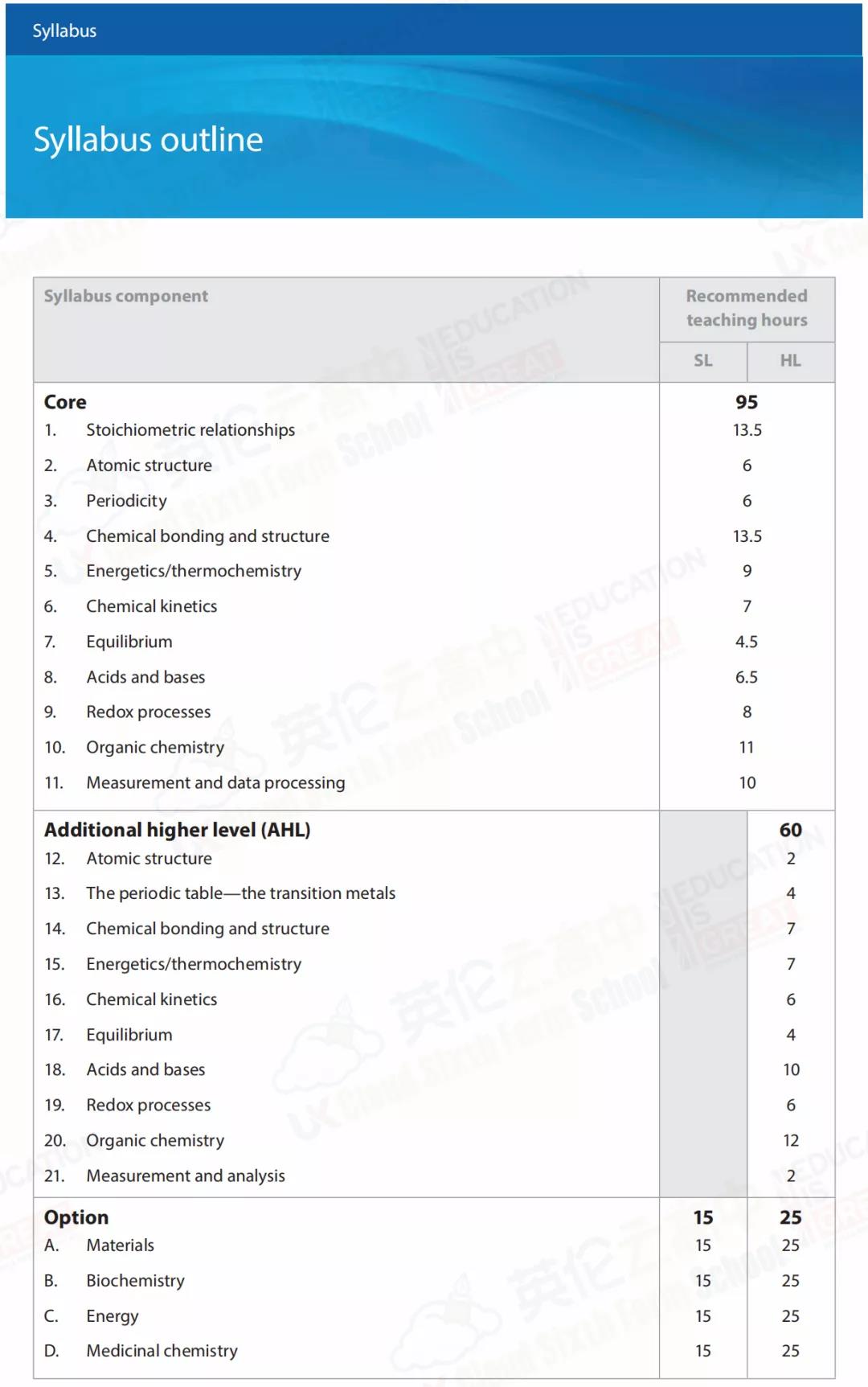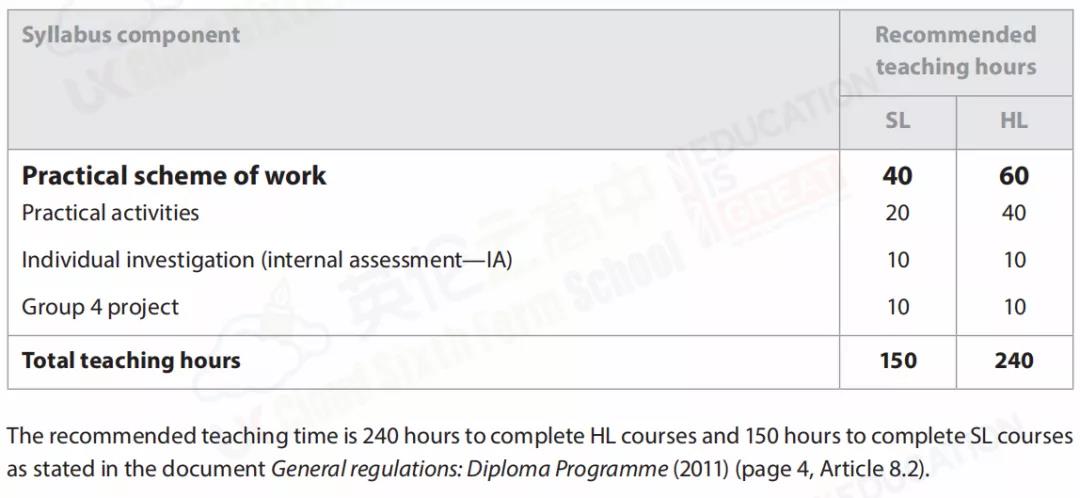总体而言IBDP课程HL要求240个小时的教学小时,SL课程为150个小时的教学小时数。
IB化学HL和SL课程各内容部分要求小时数如下:
IBDP课程内容介绍
● Topic 1: Stoichiometric relationships 化学计量关系
1.1 Introduction to the particulate nature of matter and chemical change
1.3 Reacting masses and volumes
● Topic 2: Atomic structure 原子结构
2.2 Electron configuration
● Topic 3: Periodicity 周期性
● Topic 4: Chemical bonding and structure 化学键和结构
4.1 Ionic bonding and structure
4.4 Intermolecular forces
● Topic 5: Energetics/thermochemistry 能量/热化学
5.1 Measuring energy changes
● Topic 6: Chemical kinetics 化学动力学
6.1 Collision theory and rates of reaction
● Topic 7: Equilibrium 化学平衡
● Topic 8: Acids and bases 酸与碱
8.1 Theories of acids and bases
8.2 Properties of acids and bases
8.4 Strong and weak acids and bases
● Topic 9: Redox processes 氧化还原反应
9.1 Oxidation and reduction
9.2 Electrochemical cells
● Topic 10: Organic chemistry 有机化学
10.1 Fundamentals of organic chemistry
10.2 Functional group chemistry
● Topic 11: Measurement and data processing 测量与数据处理
11.1 Uncertainties and errors in measurement and results
11.2 Graphical techniques
11.3 Spectroscopic identification of organic compounds
Additional higher level (AHL)
● Topic 12: Atomic structure 原子结构
● Topic 13: The periodic table—the transition metals 元素周期表
13.1 First-row d-block elements
● Topic 14: Chemical bonding and structure 化学键及结构
14.1 Covalent bonding and electron domain and molecular geometries
● Topic 15: Energetics/thermochemistry 能量/热化学
15.2 Entropy and spontaneity
● Topic 16: Chemical kinetics 化学动力学
16.1 Rate expression and reaction mechanism
● Topic 17: Equilibrium 化学平衡
● Topic 18: Acids and bases 酸和碱
18.1 Lewis acids and bases
18.2 Calculations involving acids and bases
● Topic 19: Redox processes 氧化还原过程
19.1 Electrochemical cells
● Topic 20: Organic chemistry 有机化学
20.1 Types of organic reactions
● Topic 21: Measurement and analysis 度量与分析
21.1 Spectroscopic identification of organic compounds
A.1 Materials science introduction
A.2 Metals and inductively coupled plasma (ICP) spectroscopy
A.7 Environmental impact—plastics
▶ Additional higher level topics
A.8 Superconducting metals and X-ray crystallography (HL only)
A.9 Condensation polymers (HL only)
A.10 Environmental impact—heavy metals (HL only)
B.1 Introduction to biochemistry
B.6 Biochemistry and the environment
▶ Additional higher level topics
B.7 Proteins and enzymes (HL only)
B.8 Nucleic acids (HL only)
B.9 Biological pigments (HL only)
B.10 Stereochemistry in biomolecules (HL only)
C.3 Nuclear fusion and fission
C.5 Environmental impact—global warming
▶ Additional higher level topics
C.6 Electrochemistry, rechargeable batteries and fuel cells (HL only)
C.7 Nuclear fusion and nuclear fission (HL only)
C.8 Photovoltaic and dye-sensitized solar cells (HL only)
● D: Medicinal chemistry 药物化学
D.1 Pharmaceutical products and drug action
D.2 Aspirin and penicillin
D.4 pH regulation of the stomach
D.5 Anti-viral medications
D.6 Environmental impact of some medications
▶ Additional higher level topics
D.7 Taxol—a chiral auxiliary case study (HL only)
D.8 Nuclear medicine (HL only)
D.9 Drug detection and analysis (HL only)
更多IBDP课程学习相关资讯请持续关注http://youth.gedu.org/
 ytt
2021-06-19
ytt
2021-06-19
 阅读:
阅读:



 Recommend
Recommend 阅读:724
阅读:724 阅读:1032
阅读:1032 阅读:752
阅读:752 阅读:1270
阅读:1270 阅读:2167
阅读:2167